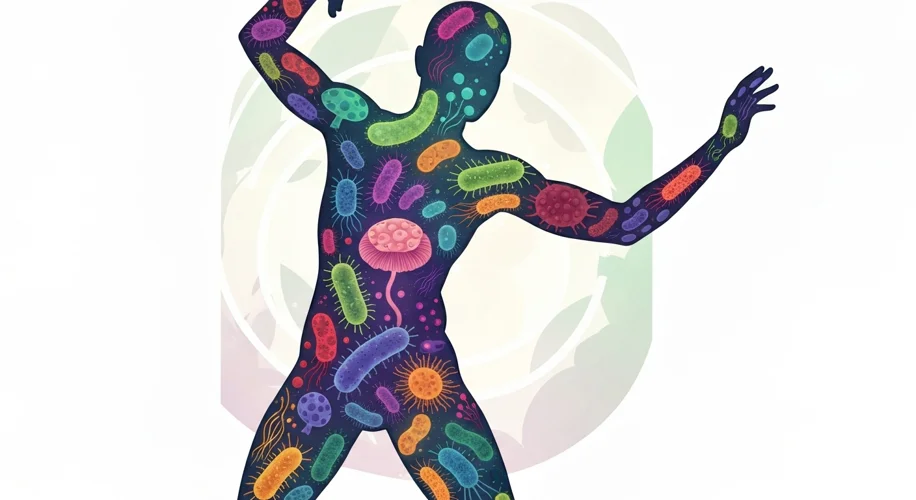It’s September 11, 2025, and I’ve been thinking a lot about what’s going on inside us, often unseen. We talk about our bodies, our organs, our cells – but what about the trillions of tiny lives we host? I’m talking about the human microbiome.
Did you know that your body is home to more microbial cells than human cells? These aren’t just passive hitchhikers; they’re active participants in our health. From the moment we’re born, these microorganisms begin to colonize us, forming complex communities that play a surprisingly big role in everything from how we digest food to how our immune system works and even how we feel mentally.
The Gut: More Than Just Digestion
When most people think about the microbiome, they think of the gut. And for good reason! The trillions of bacteria, fungi, and viruses in our digestive tract are crucial for breaking down food, absorbing nutrients, and producing essential vitamins like K and some B vitamins. But it goes deeper than that. This gut microbiome acts like a gatekeeper, influencing our immune system’s development and training it to distinguish between friend and foe.
New research is even pointing to a strong gut-brain connection. The microbes in our gut can produce neurotransmitters, like serotonin, which are vital for mood regulation. This means that a healthy, balanced microbiome could contribute to better mental well-being, while imbalances might be linked to conditions like anxiety and depression. It’s a fascinating area that’s still being explored, but the implications are huge.
Beyond the Gut: A Whole-Body Network
Our microbiome isn’t confined to our digestive system. We have microbial communities on our skin, in our lungs, and even in our brains! Each of these ecosystems has its own unique role. For instance, the skin microbiome acts as a protective barrier against harmful pathogens.
What Happens When Things Go Wrong?
When the delicate balance of these microbial communities is disrupted – a state known as dysbiosis – it can have wide-ranging effects on our health. Factors like diet, stress, antibiotics, and environmental exposures can all contribute to this imbalance. Dysbiosis has been linked to a variety of health issues, including inflammatory bowel disease, allergies, obesity, and autoimmune disorders.
Nurturing Your Inner Ecosystem
The good news is that we have a say in the health of our microbiome. A diet rich in diverse plant-based foods, fiber, and fermented products can help foster a thriving community of beneficial microbes. Things like prebiotics (found in foods like garlic, onions, and bananas) feed these good bacteria, while probiotics (found in yogurt, kimchi, and sauerkraut) introduce them directly.
As a scientist, I’m always amazed by the complexity and resilience of biological systems. Our microbiome is a perfect example of this. It’s a constant reminder that our health is a collaborative effort, involving not just our own cells, but the vast, intricate world of microbes living within and around us.

